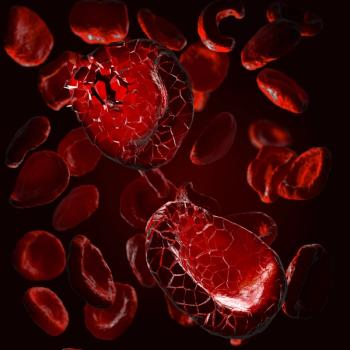
The BOOG 13-08 trial shows omitting sentinel lymph node biopsy is noninferior to performing it in select older patients with early-stage, HR+ breast cancer.

Your AI-Trained Oncology Knowledge Connection!


The BOOG 13-08 trial shows omitting sentinel lymph node biopsy is noninferior to performing it in select older patients with early-stage, HR+ breast cancer.

The 3-year event-free survival was 88.9% and 30.0% in patients with high-risk LBCL who did and did not achieve a CR at 6 months, respectively.

The phase 3 EPCORE FL-1 trial showed that adding epcoritamab to R2 delivered superior PFS and response rates for patients with relapsed/refractory FL vs R2 alone.

Fixed-duration venetoclax regimens with obinutuzumab or ibrutinib showed noninferior PFS vs continuous single-agent ibrutinib in the phase 3 CLL17 trial.


The BURAN trial revealed no overall survival benefit for buparlisib and paclitaxel in recurrent head and neck cancer, despite some response rate improvements.

OptiTROP-Lung04 data show sacituzumab tirumotecan cut the risk of progression or death by 51% in patients with nonsquamous EGFR-mutated NSCLC resistant to EGFR TKIs.

Tarlatamab plus chemo/IO showed a 71% objective response rate and promising safety for patients with ES-SCLC in the DeLLphi-303 study.

Alectinib shows promising long-term survival benefits over crizotinib for advanced ALK-positive NSCLC, highlighting significant clinical advancements.

89Zr-DFO-daratumumab shows activity in identifying and localizing multiple myeloma, even in FDG-non-avid cases, per new phase 2 data.

Retrospective analysis at SNMMI 2025 revealed α-FRT with 225AC-3BP-3940 was well tolerated and elicited responses in pretreated metastatic breast cancer.

Findings from the phase 1b TRIMM-3 trial support the potential activity of PD-1 inhibition in patients with relapsed/refractory multiple myeloma.

Data from ASCERTAIN-V may support venetoclax plus decitabine/cedazuridine as a new standard of care in those with AML ineligible to receive chemotherapy.

Data from the ENVISION trial may support UGN-102 as a well-tolerated, efficacious treatment in non–muscle-invasive bladder cancer.

Epcoritamab monotherapy led to long-term disease-free remissions in patients with relapsed/refractory large B-cell lymphoma who achieved complete response at 2 years.

The median overall survival with cilta-cel exceeds 5 years among patients with relapsed/refractory multiple myeloma in the CARTITUDE-1 trial.

THIO with cemiplimab is active and well-tolerated in patients with advanced non–small cell lung cancer resistant to immune checkpoint inhibitors in second- and third-line settings.

Data from the ROSELLA trial may support relacorilant plus nab-paclitaxel as a new standard in this ovarian cancer population.

PFS was improved with belantamab mafodotin triplet for patients with relapsed/refractory multiple myeloma with high-risk cytogenetics.

Data from the phase 3 NATALEE trial confirms ribociclib plus NSAI consistently improves survival outcomes in stage II/III HR+/HER2– early breast cancer patients, regardless of age or menopausal status.

Escalated adjuvant chemotherapy did not improve recurrence-free survival in patients with stage III colon cancer when using a ctDNA-informed approach.

The use of artificial intelligence led to a higher rate of breast cancer detection as an improvement for mammography screening compared with standard detection methods.

The approved combination of enfortumab vedotin and pembrolizumab provides an alternative to chemotherapy for patients in China.

Arlo-cel yields responses among patient subgroups, including those with triple class–refractory disease and extramedullary disease.

The FDA has granted accelerated approval to encorafenib in combination with cetuximab and mFOLFOX6 for patients with metastatic colorectal cancer with a BRAF V600E mutation, as detected by an FDA-approved test.

Active monitoring had similar rates of invasive cancer in the ipsilateral breast as guideline concordant care for the low-risk DCIS population.


Autologous transplant did not confer significantly improved overall survival regardless of induction intensity in a phase 3 trial.

For patients with relapsed/refractory diffuse large b-cell lymphoma, meaningful efficacy outcomes were shown with FS118.

Responses with epcoritamab were comparable across the expansion and optimization cohorts in the EPCORE CLL-1 trial.

Published: June 8th 2021 | Updated:

Published: June 4th 2021 | Updated:

Published: December 13th 2022 | Updated:

Published: April 15th 2021 | Updated:

Published: June 9th 2025 | Updated:

Published: June 6th 2021 | Updated: